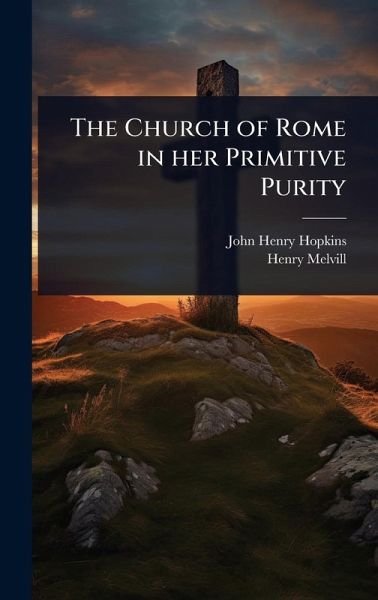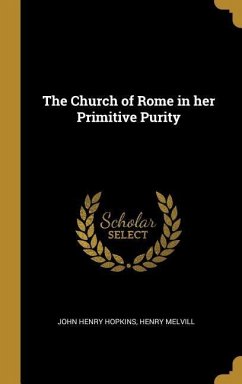
The Church of Rome in her Primitive Purity
Versandkostenfrei!
Versandfertig in über 4 Wochen
36,99 €
inkl. MwSt.
Weitere Ausgaben:

PAYBACK Punkte
18 °P sammeln!
âThe Church of Rome in Her Primitive Purityâ offers a detailed examination of the Roman Catholic Church's historical doctrines and practices. Penned in 1839 by John Henry Hopkins, with an introduction by Henry Melvill, this work explores the theological arguments surrounding the church's early history. Hopkins delves into the controversies and doctrinal developments, providing readers with a historical perspective on the theological debates that shaped Christianity. This volume provides valuable insights into 19th-century religious thought and the ongoing discussions about church authority, ...
âThe Church of Rome in Her Primitive Purityâ offers a detailed examination of the Roman Catholic Church's historical doctrines and practices. Penned in 1839 by John Henry Hopkins, with an introduction by Henry Melvill, this work explores the theological arguments surrounding the church's early history. Hopkins delves into the controversies and doctrinal developments, providing readers with a historical perspective on the theological debates that shaped Christianity. This volume provides valuable insights into 19th-century religious thought and the ongoing discussions about church authority, tradition, and the interpretation of scripture. It is a significant resource for scholars and readers interested in the history of Christian doctrine and the evolving relationship between different Christian traditions. This work has been selected by scholars as being culturally important, and is part of the knowledge base of civilization as we know it. This work was reproduced from the original artifact, and remains as true to the original work as possible. Therefore, you will see the original copyright references, library stamps (as most of these works have been housed in our most important libraries around the world), and other notations in the work. This work is in the public domain in the United States of America, and possibly other nations. Within the United States, you may freely copy and distribute this work, as no entity (individual or corporate) has a copyright on the body of the work. As a reproduction of a historical artifact, this work may contain missing or blurred pages, poor pictures, errant marks, etc. Scholars believe, and we concur, that this work is important enough to be preserved, reproduced, and made generally available to the public. We appreciate your support of the preservation process, and thank you for being an important part of keeping this knowledge alive and relevant.






![The Catacombs of Rome and Their Testimony Relative to Primitive Christianity [microform] Cover The Catacombs of Rome and Their Testimony Relative to Primitive Christianity [microform]](https://bilder.buecher.de/produkte/65/65544/65544165n.jpg)





